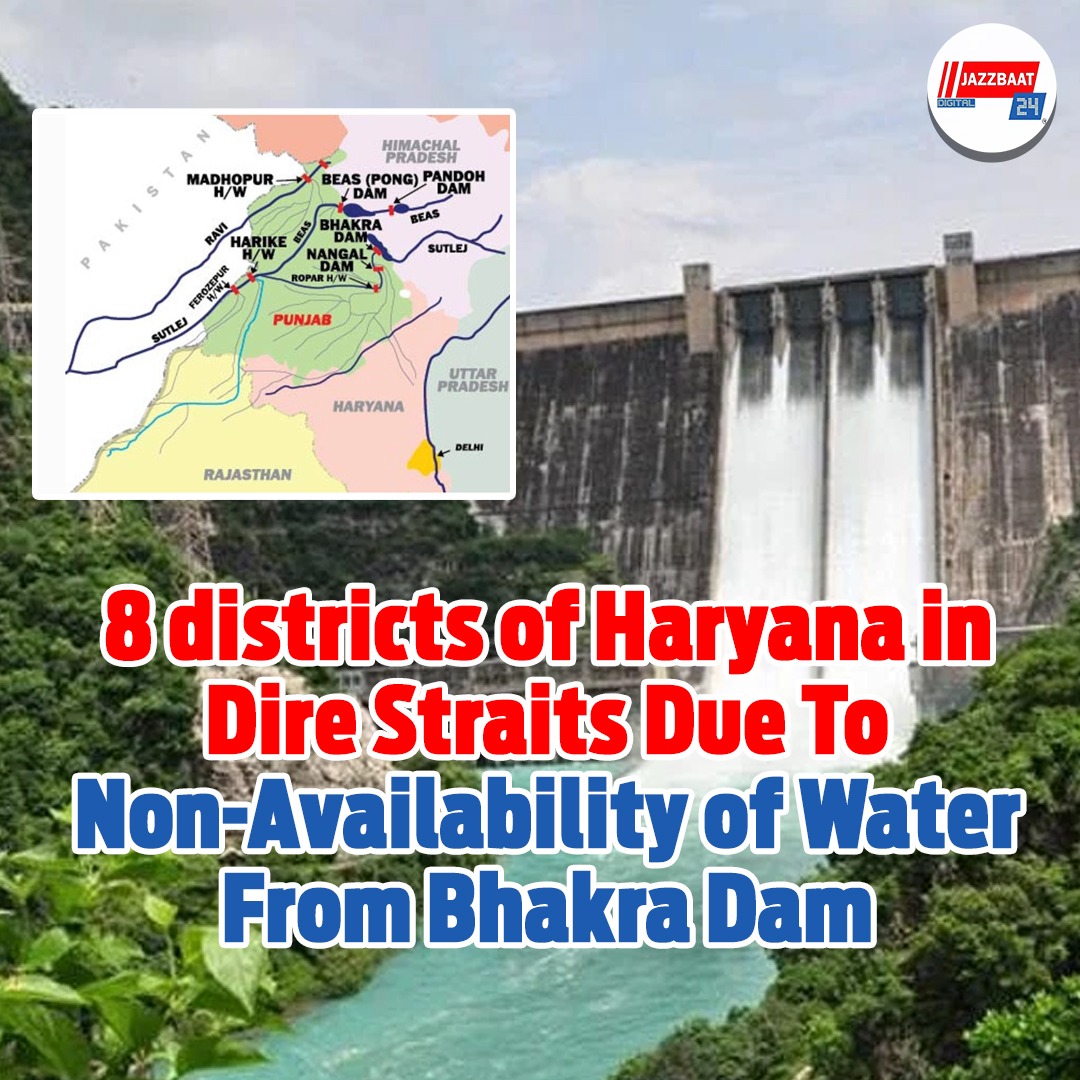
Haryana's water crisis has intensified with Punjab's decision not to release additional water to Haryana from Bhakra dam. As a result, eight districts of Haryana—Sirsa, Fatehabad, Hisar, Kaithal, Kurukshetra, Jind, Bhiwani and Charkhi Dadri—are facing severe drinking water shortage. An internal report by the Haryana Public Health Engineering Department (PHE) has said that these districts are getting only 15 percent of their required drinking water.
Statistics show that these eight districts require a total of 4,931.90 crore litres of drinking water, but are getting only 764.80 crore litres under the current arrangement. Considering the seriousness of the situation, this issue was also raised in an all-party meeting chaired by Chief Minister Nayab Singh Saini.
The report also mentioned that 156 out of the 614 reservoirs in the state have already dried up completely. As a result, at least 36 villages are having to be supplied with water through emergency tankers. With no assurance from Punjab that water supply will continue, the PHE department has ordered adequate storage in reservoirs for drinking water across the state.
A senior PHE official said, “We are waiting for God’s blessings… The situation is very critical till May 20. So, a demand for additional water for only eight days was made through BBMB, which was accepted. The decision was taken on the basis of the Home Ministry’s instructions.”
He added that these districts of Haryana are mainly dependent on the canal network and farmers are also worried as the sowing season is ahead. However, drinking water is the main priority at present, so farmers have been requested to refrain from “panic irrigation”.
Meanwhile, the dispute between the Punjab and Haryana governments over the release of excess water from the Bhakra dam has reached a peak for the past one week. Punjab, which used to release 8,500 cusecs of water earlier, has now reduced it to 4,000 cusecs. Despite the Centre's advice, the Punjab government has been absent from the meetings called by the BBMB. Chief Minister Bhagwant Mann has already decided to call a special assembly session to discuss the crisis.
This water dispute is not limited to the two states alone, but has become a major challenge for the central administration. Agriculture, public health and inter-state relations are all affected by the crisis. Now, united political will and long-term solutions are needed to deal with the situation.